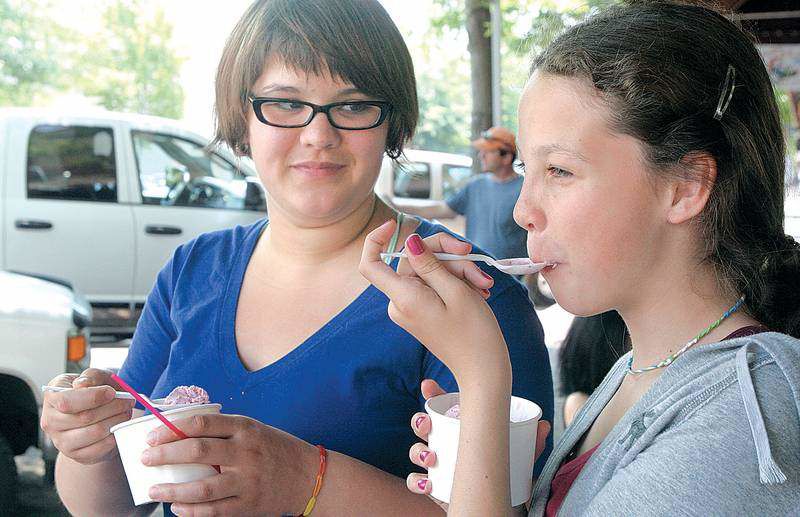Summer vacation can mean kids’ diets take an unhealthy break
Published 5:00 am Thursday, July 17, 2008

- Lauren Beck, left, 16, and Elena Peters, 12, both of Seattle, have an ice cream treat on a recent afternoon. Nutritionists say occasional treats are OK but that an unstructured summer can be bad for kids’ health.
Sometimes during the summer months, it’s not just school that takes a break. Children’s nutritional habits can go on vacation as well.
It happened to the niece of Lori Brizee, a registered dietitian in Bend who specializes in pediatric nutrition. Fueled by a baby sitter who fed her a steady diet of television and fattening snacks, the 8-year-old gained 30 pounds during the summer break, Brizee said.
“Kids are home all day,” Brizee said. “They are home watching TV and eating all day long. That’s the problem.”
Brizee said lack of structure combined with easy access to food and the seduction of lying on the couch could fuel bad summer habits.
There’s research that agrees with her. A study published last year in the American Journal of Public Health found that kids were more likely to gain weight in the summer than during the school year.
The study measured body mass index, a measure of a person’s bulk using weight and height and more commonly called BMI, for about 5,400 children beginning in kindergarten and extending through first grade. During the summer, BMI increased about twice as fast as during the school year.
The research also said that children’s weight tends to become less stable during the summer, with underweight children displaying unhealthy patterns in a different direction. Underweight kids’ BMIs grew more slowly during the summer than during the school year, leading the researchers to conclude that for all children, there is a tendency “to display healthier growth patterns during the school year than during summer vacation.”
The study did not look at the reasons why children’s weights were less stable during the summer, but the researchers suspected it had to do with the structure of the school day and with the availability of food at only certain times during the day.
That, Brizee said, is key. “The people I really worry about the most are kids who sit home all day and don’t have any structured activities.”
Brizee said it’s important for kids to have certain times when they are allowed to eat and then know that at other times, the “kitchen is closed.” During the school year, that can happen more naturally because kids usually have a more set schedule. But, during the summer, kids often can eat what and when they want, sometimes with disastrous results.
“When they’re home and they’re bored, they just want to snack all day long,” Brizee said.
Another issue could be the types of food served at the places where kids spend their time during the summer: camps or on vacations. Thanks to legislation that will go into effect in the fall, Oregon’s schools have some of the strictest nutritional standards in the nation. Food sold at schools must meet calorie, fat and sugar content standards. For outside-of-school activities, including many of the things kids do in the summer, there are no such standards.
Still, serving healthy food is important to Sue Boettner, who runs several youth summer camps for the Bend Metro Park and Recreation District and estimates that they serve food to about 500 kids each week.
“We do some Rice Krispie treats,” Boettner said. “That’s about as bad as I get.”
Boettner said she buys the food for the programs herself and makes sure she provides healthy snacks for children. At snack time, she said, “If you give kids an opportunity to pick granola, Nutri-Grain or fruit, that’s just the choice.”
That doesn’t mean all treats are out. Boettner said the kids were very excited about a recent ice cream social. But, on a regular basis, the camps work hard to provide healthy snacks.
In the summer, that’s how things should be, Brizee said. “Giving a kid an ice cream cone is a fun treat,” she said. The key is to keep it a treat rather than a regular food.
“If you buy chips, you have it be a one-time thing,” Brizee said. “Just having chips that kids munch in front of TV, that’s not a good thing.”






